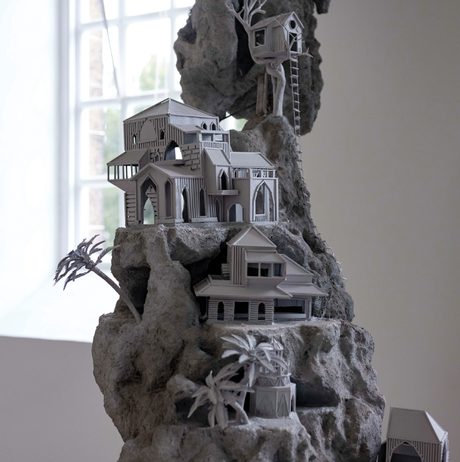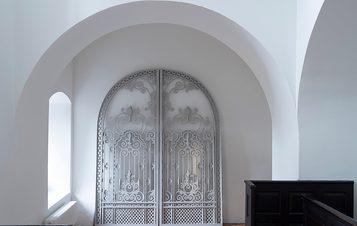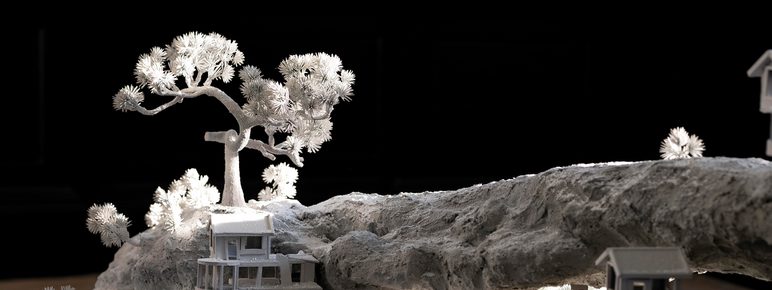
About Saad Qureshi: Something About Paradise
British artist Saad Qureshi explores what paradise means in a contemporary context in his first solo museum exhibition, Something About Paradise.
In the nave of YSP’s 18th-century Chapel, three monumental organic forms rise from the ground, spread with landscapes, buildings and mysterious structures. A closer viewing reveals an eclectic mix of architectural styles, from traditional temples and churches to modernist houses and palaces, nestled among panoramas of forests, deserts and fantastical geological formations.
Qureshi is an avid gatherer of stories. In developing Something About Paradise he travelled around the country asking those with and without faith what paradise means for them. Speaking directly to people allowed the artist space to interpret the descriptions of indistinct and imagined places, as seen in memories and dreams, into physical installations that he refers to as ‘mindscapes’.
Standing against the Chapel walls are seven ornate, hand-cut and painted wooden gates referencing both the gates of paradise or the seven heavens that are common to many religions. By combining the earthly and spiritual in the meditative setting of the Chapel, Qureshi invites audiences to reflect on common ground in today’s frequently polarised society and opens up possibilities for a profound and hopeful dialogue between people.
‘Paradise is a very personal place. Over the course of my life, it’s a word that has kept recurring in a variety of guises. I was born into a religious household, where the Quranic allegories of the seven heavens formed part of the backdrop to family life. As I grew up and my experiences broadened, I realised that the paradise that others spoke of was often radically different from mine, yet never too far from our consciousness.’ - Saad Qureshi
You may also like
- Profile

Saad Qureshi
- Art Outdoors
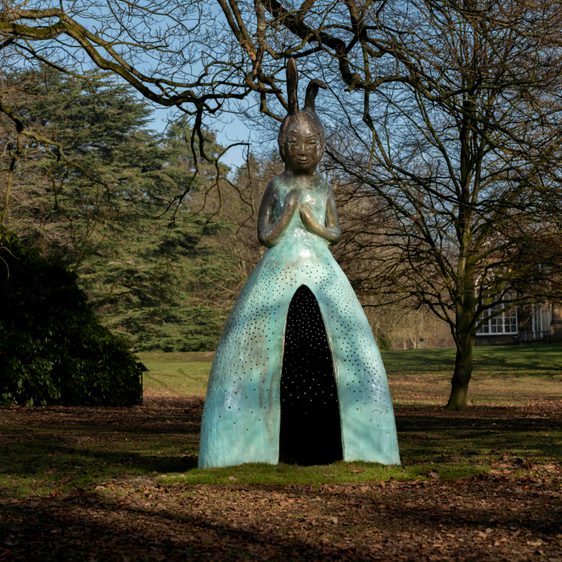
Leiko Ikemura: Usagi Kannon II
Usagi Kannon II [Rabbit Madonna] is one of Ikemura’s most significant motifs. Her hybrid creature with rabbit ears and a crying, human face acts as symbol of universal mourning, first created in 2011 in response to the Fukushima nuclear disaster in Japan. - Art Outdoors
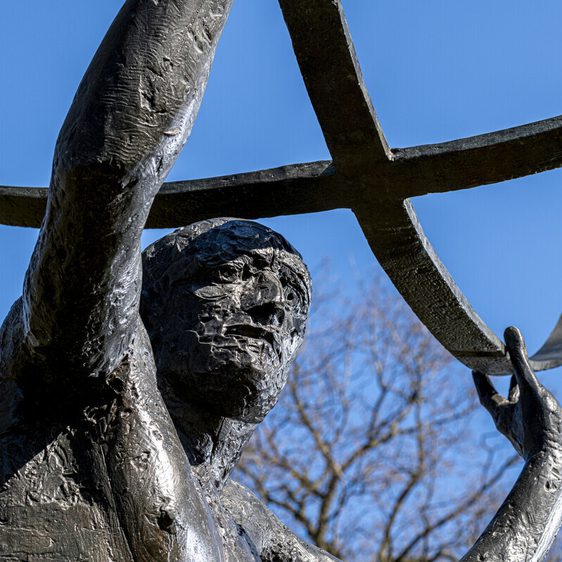
Elisabeth Frink: Atlas
In Greek mythology, Atlas is a figure responsible for holding the heavens aloft. This sculpture combines several themes that Frink returned to throughout her career: strength and endurance alongside burden and vulnerability. - Art Outdoors
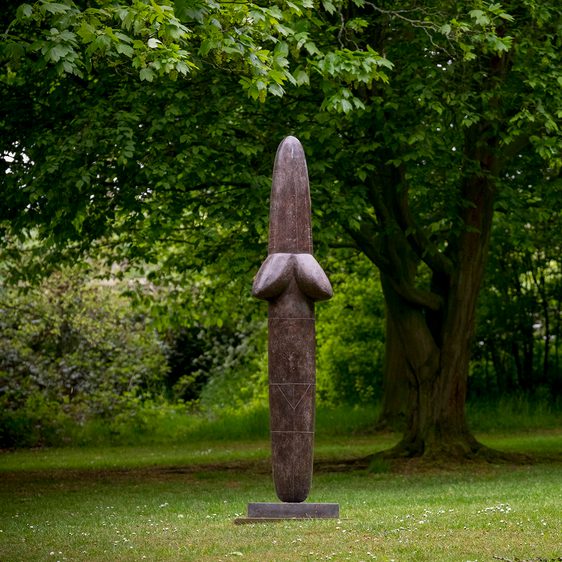
William Turnbull: Large Idol
Large Idol forms part of a series of ‘Idol’ sculptures which William Turnbull made over the course of several years. These minimal works take the human form as a starting point which is then simplified and refined, whilst maintaining a sense of figuration. The titles of these streamlined forms make reference to them perhaps being thought of as ancient gods and being worshipped for their power and beauty.
